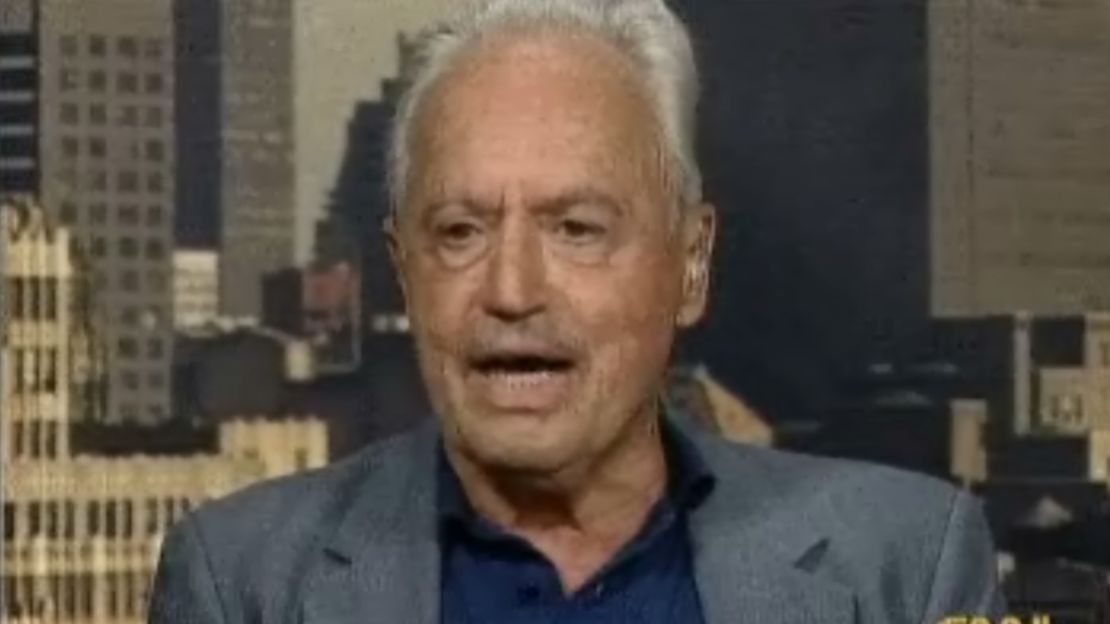Editor’s Note: John Avlon is a CNN contributor and senior political columnist for Newsweek and The Daily Beast. He is co-editor of the book “Deadline Artists: America’s Greatest Newspaper Columns.” He is a regular contributor to “Erin Burnett OutFront” and is a member of the OutFront Political Strike Team. For more political analysis, tune in to “Erin Burnett OutFront” at 7 ET weeknights.
Story highlights
John Avlon: Marvin Miller, who died Tuesday, brought free market competition to baseball
Avlon: When Miller became head of players' union, the average player's salary was $7,000
Avlon: Players couldn't leave teams, which Miller fought, calling it a form of slavery
Avlon: He made it possible for players to be free agents, but he never got in the Hall of Fame
Marvin Miller died Tuesday at the age of 95. And here’s why you should know his name: Miller transformed the game of baseball even though he never put on a uniform.
This slight union lawyer was considered the enemy of owners, and yet he might have done more than anyone else to bring free market competition to the national pastime and make it a modern big business.
He was lionized and vilified and is sadly still denied entry into the Baseball Hall of Fame.
Baseball combines sports and statistics, so consider these numbers when assessing the career of Marvin Miller. When the Brooklyn-born mustachioed man was named executive director of the Major League Baseball Player’s Association in 1966, the average player’s salary was just $7,000 a year. Many professional players had to work a second job just to provide for their families. In 1984, when Miller left the position, the average players’ salary was $329,000. Today it is $3.4 million.

The reason is free agency. And that was the innovation that Miller brought to the game, against the bitter opposition of team owners.
Bizarre as it might sound today, 40 years ago baseball was exempt from antitrust legislation. One of the impacts was that players could be contractually obligated to work for one team in perpetuity through what was called the reserve clause. They were effectively denied the ability to test their value in the open market, something Miller saw as akin to slavery.
Get our free weekly newsletter
In 1969, he and a courageous St. Cardinals’ player named Curt Flood, later christened “Dred Scott in Spikes” by columnist George Will, took their challenge to the reserve clause all the way to the Supreme Court, where they lost by a 5 to 3 decision in 1972.
But Miller persevered and pursued the players’ liberation of their capital through free agency in 1975. This survived a series of court challenges and became the norm today.
Yes, players are now paid sometimes absurd salaries, but fans come to see players, not owners, and they deserve their share of the profits as a result. Yes, fans are too often denied their game by selfish strikes perpetrated by players and owners alike. These are unwelcome side effects of Miller’s legacy.
But the free agency era of increased competition has actually chipped away at monopolies in every sense. Dynasties are less frequent and more teams have climbed from the cellar to the World Series. Competition works.
The fact that Miller was denied entry into the Hall of Fame as recently as 2010 speaks to the influence of owners and their deep dislike of Miller’s intrusions and innovations.
But there is irony that the trust-buster actually helped grow the economic pie of baseball, making more players and owners wealthy. It was ultimately a win-win, though the owners would always have a hard time seeing it.
The most eloquent tribute to Miller might have been his extended inclusion in the documentary “Baseball” by Ken Burns, one of my favorite movies. But the real tribute is all around us; in countless ways the national pastime has been transformed through the efforts of a man whose name you might not have heard before Tuesday night: Marvin Miller, R.I.P.
Follow @CNNOpinion on Twitter
Join us at Facebook/CNNOpinion
The opinions in this commentary are solely those of John Avlon.
